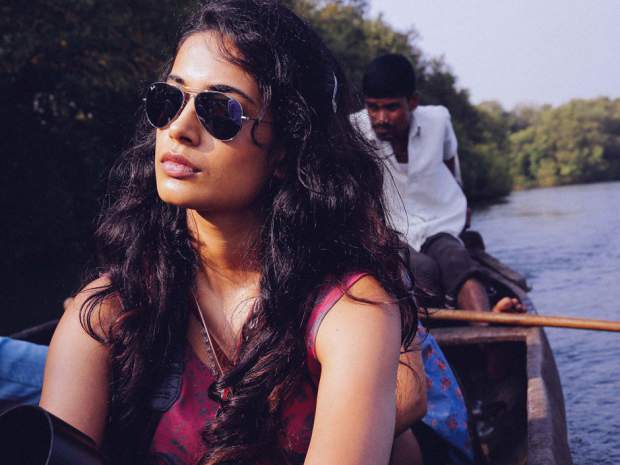With a title like Angry Indian Goddesses, there’s perhaps little surprise that the film, directed by Pan Nalin, pointedly skewers the Bollywood industry in its very first scene.
Half-Brit, half-Indian actress Joanna (Amrit Maghera) is shooting an action scene where her damsel-in-distress character is saved from a bunch of bad guys. Instead of waiting for the hero to show up, Joanna dives into the fisticuffs, delivering one empowering blow after another until the director calls “Cut!” and admonishes her not following the script. He reminds Joanna to dance and jiggle her body parts, causing the young actress to storm off the production.
This intense introduction is appropriate for a film that lives up to its title and delivers something rarely seen in Indian cinema: the story of not one, not two, but six distinct Indian women characters with unique dreams and struggles – with the one common thread in their lives being India’s intrusive patriarchal society. Even the housemaid, though not granted as much screen time, is given a sympathetic storyline that delves into the source of her vicious outbursts. So make that seven Angry Indian Goddesses.
Freida gathers Joanna, Madhurita, and other friends – pretty housewife Pamela (Pavleen Gujral), businesswoman Suranjana (Sandhya Mridul) and activist Nargis (Tannishtha Chatterjee) – at a country home in Goa to celebrate her upcoming nuptials. Relishing the girls-only-club setting, the life-long friends settle back into their old dynamic, teasing and probing each other for lurid details about their sex lives. The bachelorette party in full swing, the film finds its groove when it takes the time to endear us to these passionate, complicated women, who represent a wide variety of quirks, fashion choices, hairstyles and sensibilities.
But as the film unpacks their internal turmoils and foreshadows external threats of violence – among them, Madhurita’s suicide attempts, Suranjana’s negligent relationship to her young daughter and a group of sexist locals with whom the women have a violent encounter – Angry Indian Goddesses fails to choose among a variety of plot paths by attempting to navigate them all. Unsurprisingly, these conflicts are grounded in some kind of feminist sociopolitical context. The topics of sexual violence, divorce, depression, homosexuality, arranged marriages, and beauty standards are all shoehorned in, but they don’t all get their due.
The goddesses’ clashes with the locals, for example, demonstrate the degree to which the female characters must fend off men physically while also revealing the complexity of such encounters. One of the women criticizes another for being “too violent,” because while it’s common for Indian women to fight back, too much bravura can trigger more violence from men, who always have the upper hand.
The ubiquity of sexual violence in India and the lax reactions from law enforcement has caused many Indian women to take justice into their own hands. Angry Indian Goddesses does little to contextualize all of this, which makes its final 20 minutes – a wild, jarring tonal shift into murderous thriller territory and a shocking outcome – feel unearned, not to mention baffling to Western viewers unaware of the country’s history of vigilante justice.
And yet, such a perplexing ending should serve as a wake-up call, too. That curiosity that’s piqued by the end of the film? Don’t ignore it. Fall down the rabbit hole. Take off the blinders. Movies like Angry Indian Goddesses encourage us to pay attention to other parts of the world — often more violent than our own privileged Western existence — and gain perspective.

